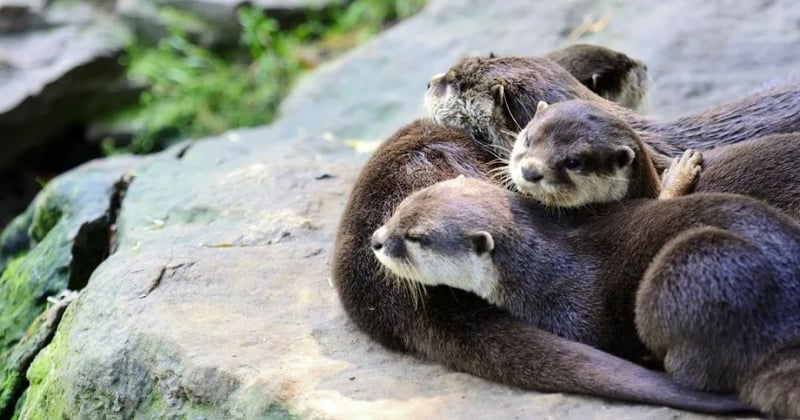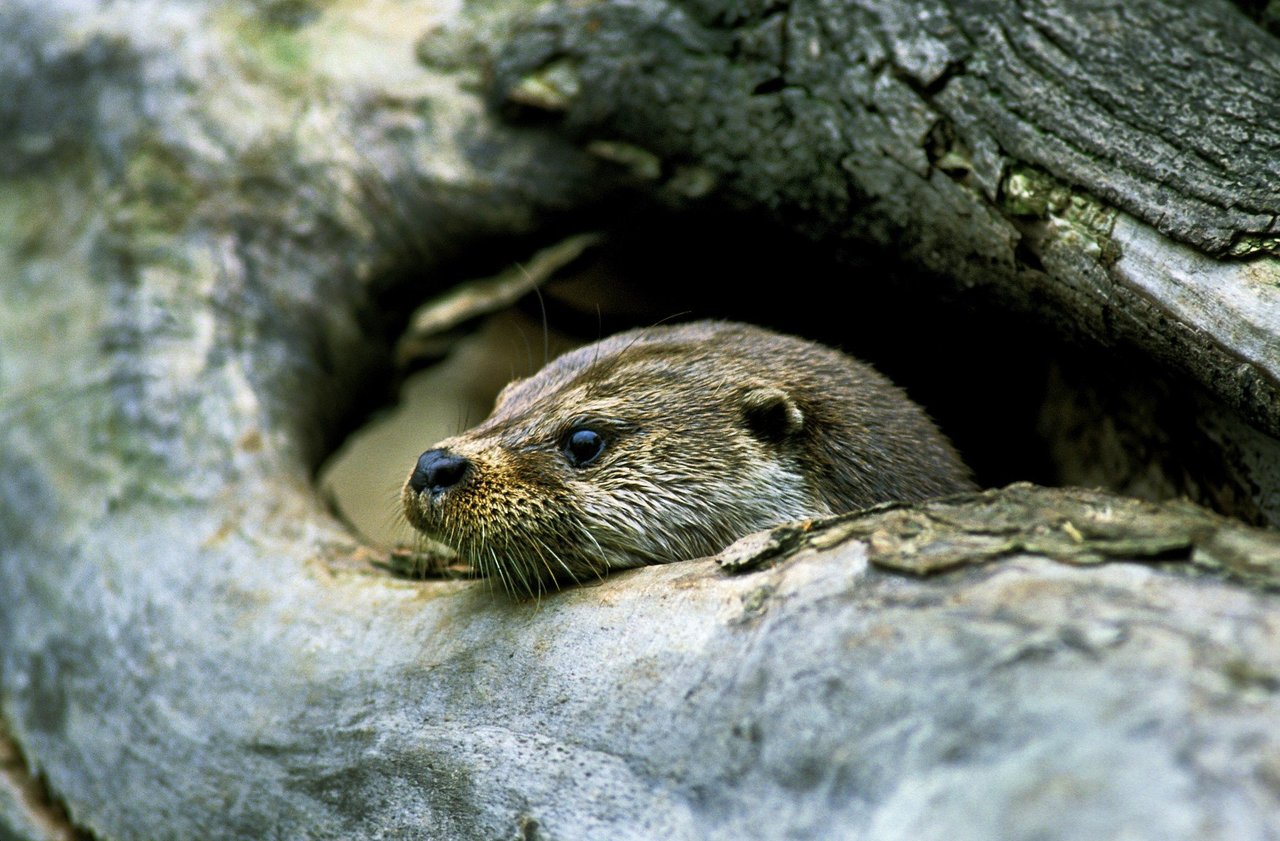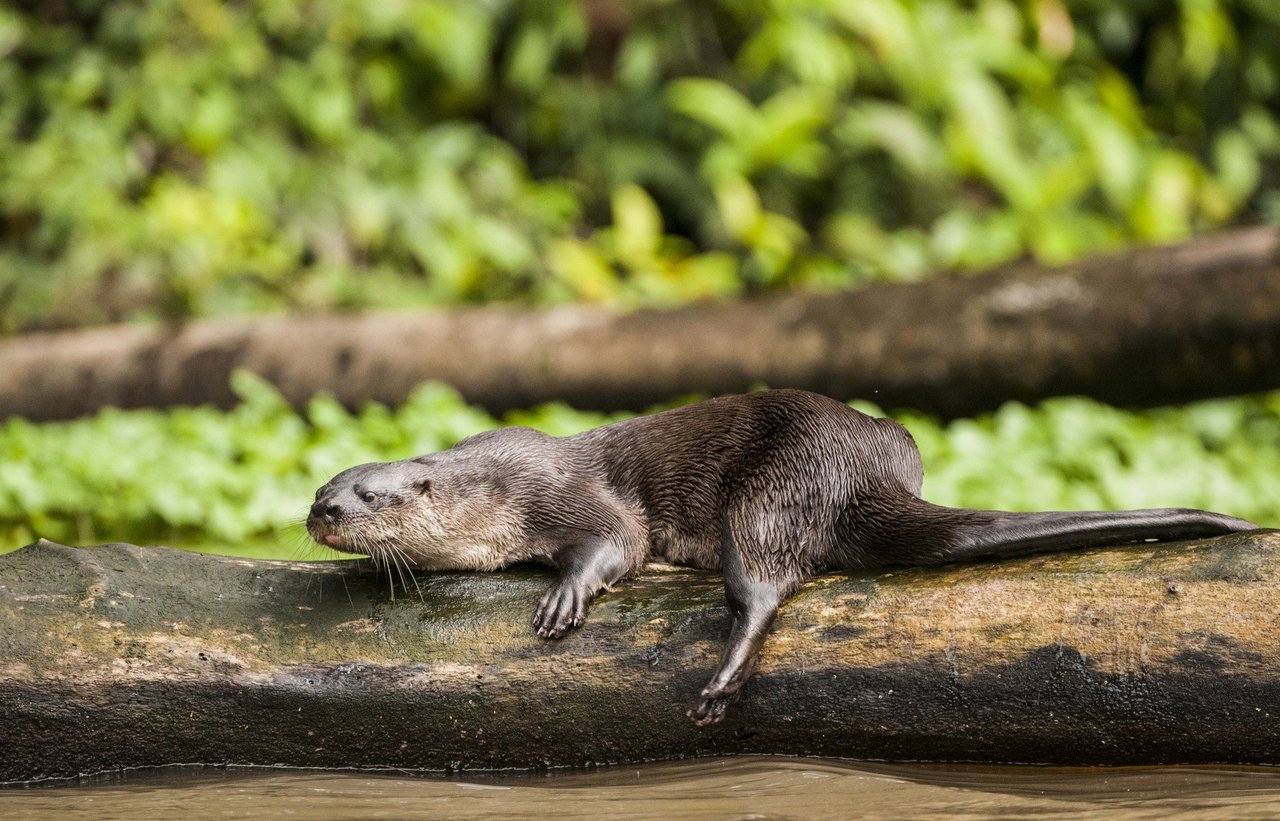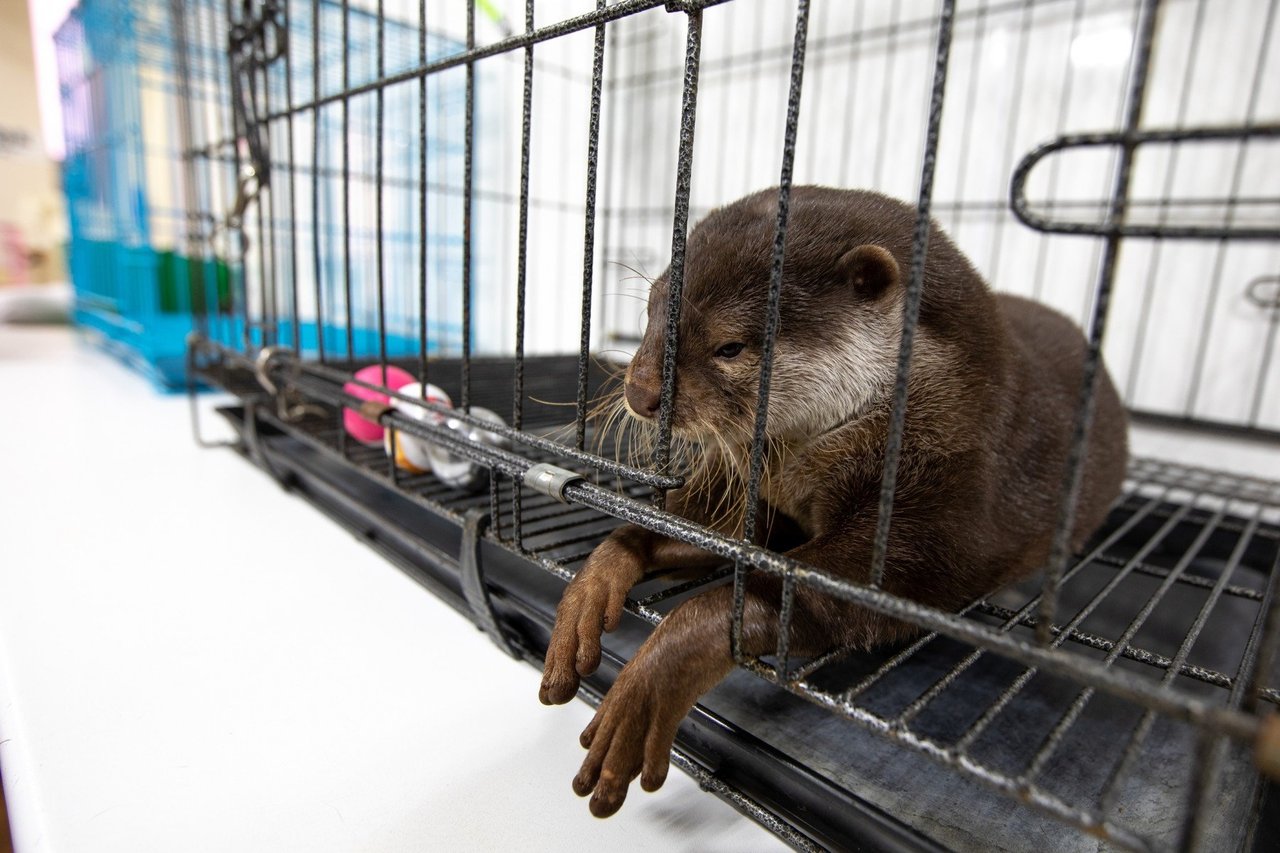
When thinking of an otter, you may conjure an image of these adorable mammals comfortably lounging belly-up on a body of water, enjoying their favorite shellfish. But do you know where otters live?
Join us in celebrating World Otter Day by exploring where otters live!
Before we dive into the diverse array of otter species, let’s discuss an otter’s general habitat.
Otters prefer wet habitats and can thrive in lakes, freshwater rivers, oceans, and along coastlines. Some otter species hardly venture ashore, but most spend the bulk of their time on land.
You may know that beavers keep themselves busy building dams and dens, but did you know that otters often occupy these same dens? That’s right—some otter species live in leftover dens created by beavers and other burrowing mammals.
Globally, otters are spread far and wide. There are thirteen otter species, and these species determine exactly where a “family” (or if they’re in water, they’re aptly called a “raft”) of otters call home.
Africa
Both the Spotted-necked otter and African clawless otter reside in sub-Saharan Africa, while the Congo clawless otter lives in central Africa, particularly in the Congo River Basin.
African otters are sometimes called “fisi maji” by locals, which is Swahili for “water hyena.” Because otters are stealthy swimmers with strong jaws to crack open crustaceans, this descriptor rings true.
North America
If you’ve spotted an otter in the United States, there’s a good chance you saw the North American river otter. This otter can be found throughout much of North America, from the Rio Grande down in Mexico up to Canada.
The Sea otter dwells in Alaska and the Aleutian Islands, Washington state, the California coast, and British Columbia. They are the only species of otter that lives primarily in water, typically spending their days within the confines of a kelp forest.
South America
South America is packed with otter species. The Giant otter can be found in the northern half of South America, the Marine otter lives all along the Pacific coastline, and the Southern river otter occupies Chile and Argentina.
Also found in South America (as well as Central America and Trinidad) is the Neotropical otter. Their Latin name Lontra longicaudis speaks to how their tails are over one-third of their body length! Their long tails explain why Neotropical otters are such great swimmers.
Southeast Asia
Southeast Asia is home to three species of otter: the Asian small-clawed otter (also found in China), the Hairy-nosed otter, and the Smooth-coated otter.
Smooth-coated otters also have a small population of about 200-900 in Iraq. They are considered an indicator of environmental health, and efforts are underway to increase their population in Iraq and ensure that they thrive.
The final otter species is a global wild card: the Eurasian otter can be found throughout much of Europe, Asia, and even Northern Africa. Unsurprisingly, they are the most territorial otter species, as a single family’s territory can encompass as much as 25 miles.
You may have noticed that we did not mention the otters who live in human homes as pets or in animal cafés as entertainment—for good reason. Otters belong in the wild. When they’re taken from their homes (often through the cruel global wildlife trade) and placed in captivity, they suffer from stress, lack of enrichment, proper nutrition, and the confines of a cage.
Further, our latest report, Devastating Deals: How Groupon Rakes in Profits from Wild Animal Exploitation, details how global e-commerce company Groupon profits from selling deals to venues that exploit wild animals like otters. The report demonstrates how otters and other animals suffer in roadside zoos where they are forced to engage with humans and confined to harmful and unnatural environments. Jelly, an otter kept at a Las Vegas SeaQuest, drowned after her arm became stuck in a tank’s filtration system.
Read more from the report, and then ask Groupon to stop profiting from wild animal suffering and adopt an animal welfare policy that protects animals like otters.


